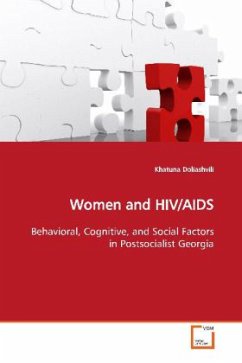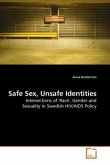This book explores how women assess their own levels
of HIV perceived risk and addresses the need for
effective prevention education. The prevention of
HIV/AIDS is a significant health concern not only for
high-prevalence countries, but also for the general
population in low-prevalence countries. Efforts that
specifically target women frequently emphasize
informal communication and pay little attention to
prevention education that focuses specifically on the
recognition of risky behaviors, health communication
skills, and the reduction of negative attitudes
toward infected individuals. Understanding and
helping women assess their perceived risk is an
important strategy for promoting health communication
in settings where traditional gender attitudes
prevent interpersonal sexual communication between
couples and between parents and children. This book
is a useful reference for scholars and practitioners
working on disease prevention in the social, health,
behavioral, and policy fields in Eurasia and beyond.
of HIV perceived risk and addresses the need for
effective prevention education. The prevention of
HIV/AIDS is a significant health concern not only for
high-prevalence countries, but also for the general
population in low-prevalence countries. Efforts that
specifically target women frequently emphasize
informal communication and pay little attention to
prevention education that focuses specifically on the
recognition of risky behaviors, health communication
skills, and the reduction of negative attitudes
toward infected individuals. Understanding and
helping women assess their perceived risk is an
important strategy for promoting health communication
in settings where traditional gender attitudes
prevent interpersonal sexual communication between
couples and between parents and children. This book
is a useful reference for scholars and practitioners
working on disease prevention in the social, health,
behavioral, and policy fields in Eurasia and beyond.








